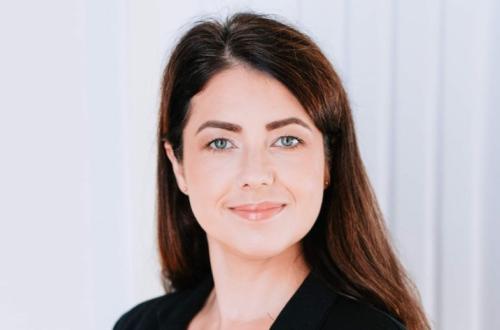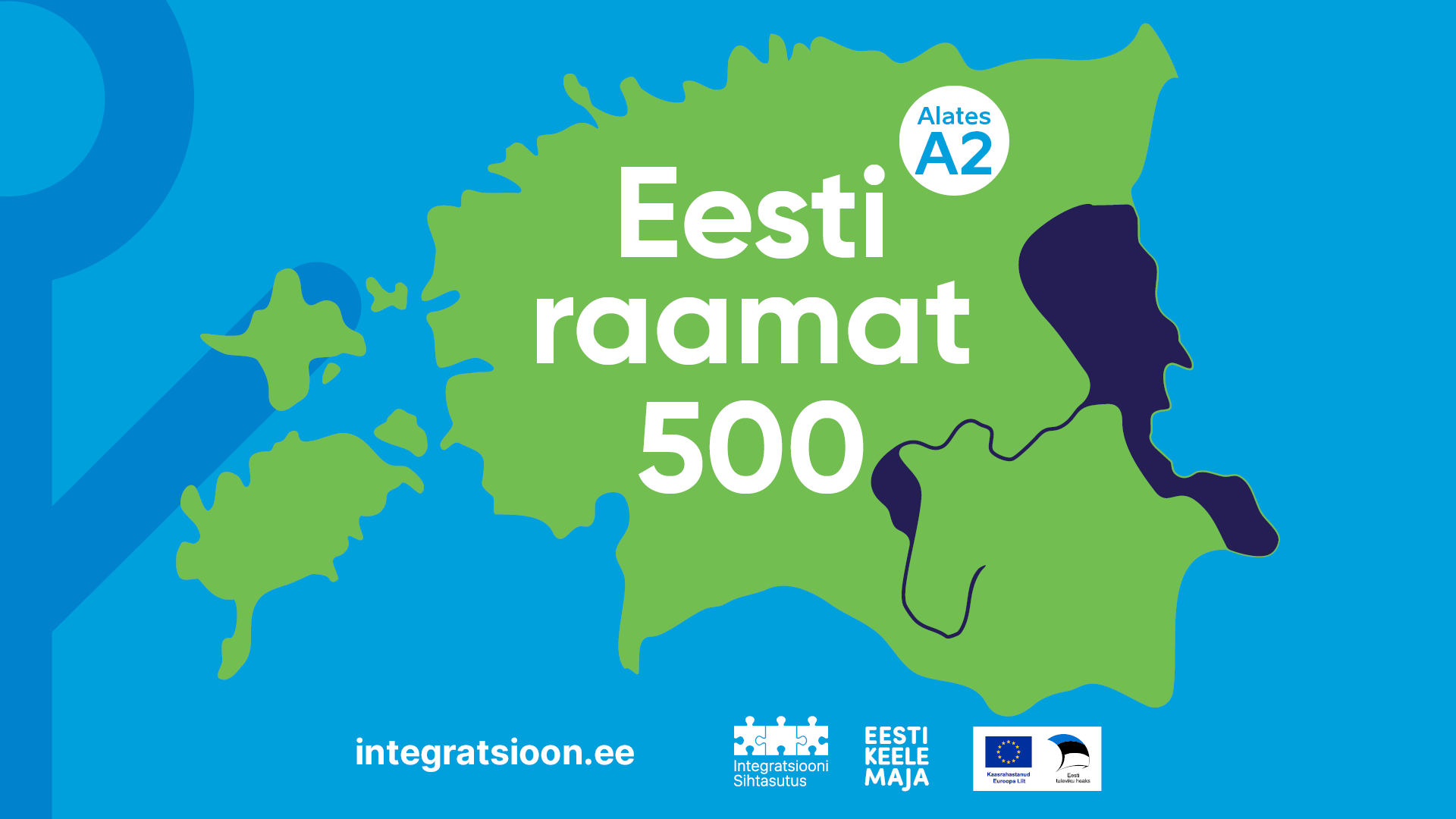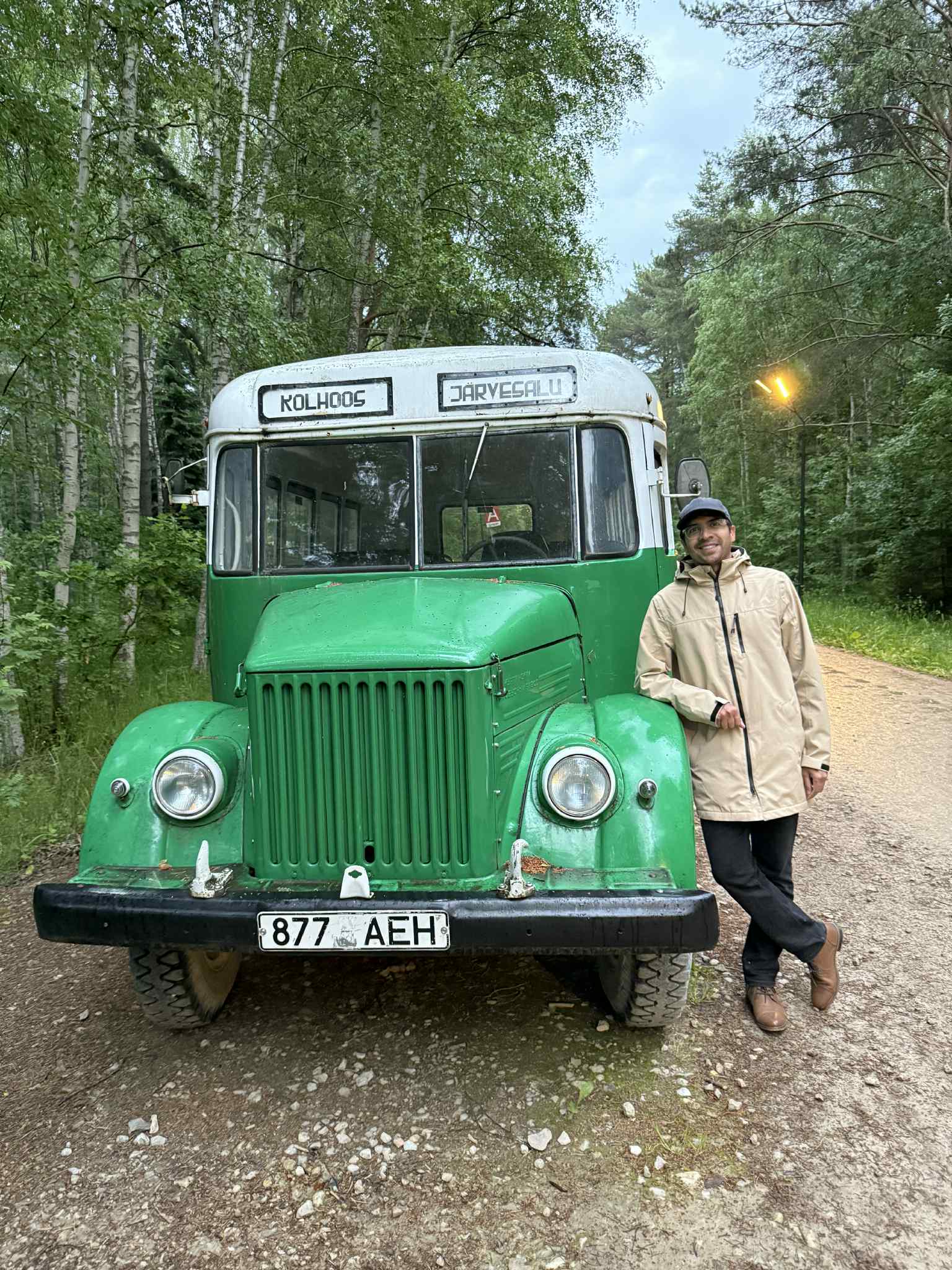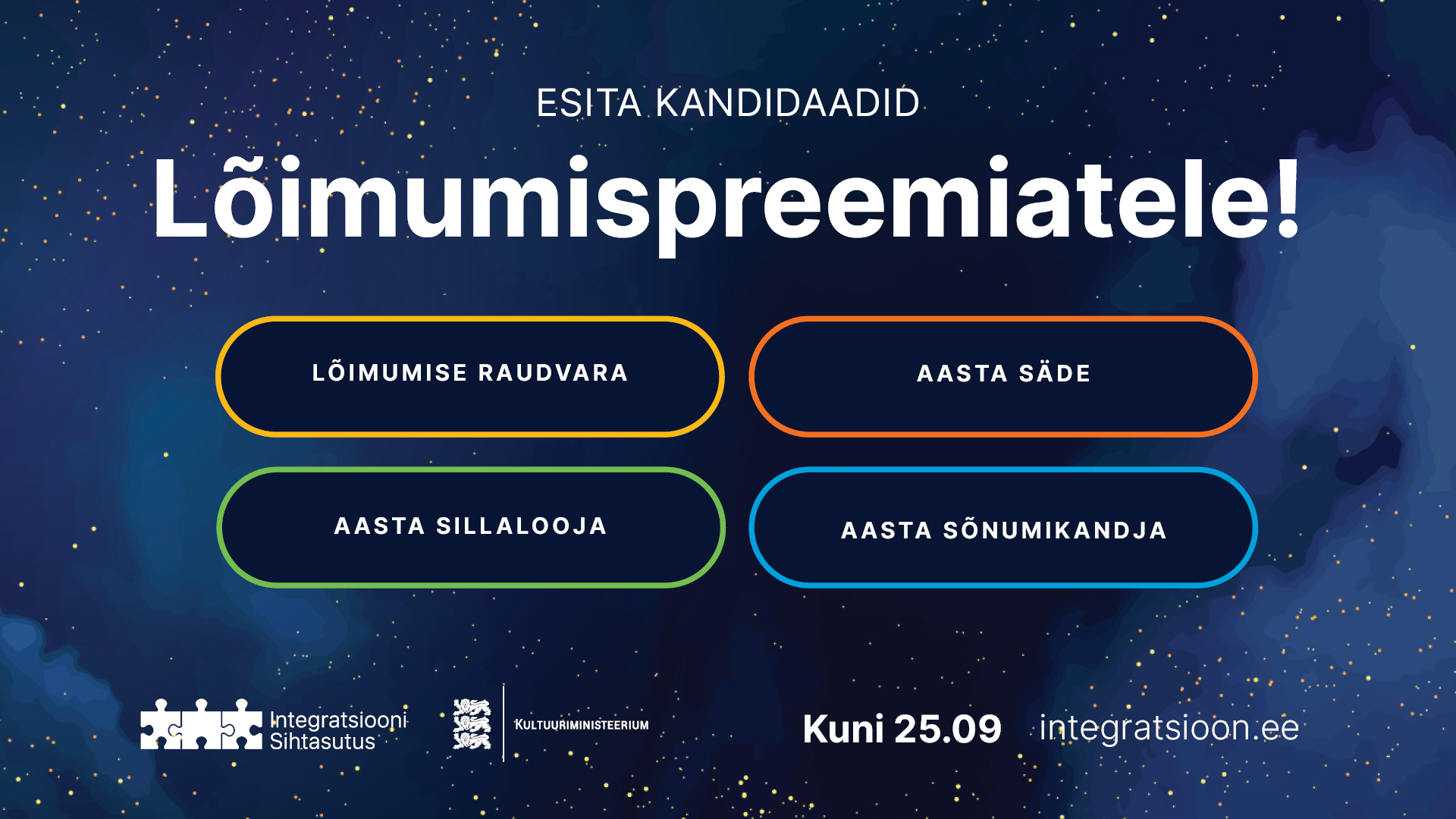The partners of the Integration Foundation work every day to ensure that newcomers living in Estonia receive the support they need and feel at home. In this story series, we give them a voice to share their professional joys, challenges, and lessons learned. This time, Marion Tamberg, Social Welfare Manager at the Estonian Refugee Council, shares her thoughts.
‘The information is available, but people often have trouble finding the correct and reliable answer from the whole range of services and information,’ says Marion Tamberg, Social Welfare Manager at the Estonian Refugee Council, describing one of the key issues that almost all newly arrived immigrants face. Her daily work focuses on ensuring that people who have arrived in Estonia feel cared for, seen, and supported here.
Marion’s journey into the field of adaptation began in 2016 when she moved from youth work to the Estonian Refugee Council to coordinate support services for beneficiaries of international protection. A brief stint in the public sector helped her learn about the field from a new and broader perspective. At the Ministry of the Interior, where she first started, Marion’s colleagues developed, among other things, the original national welcoming programme Settle in Estonia. When the area of adaptation was transferred to the Ministry of Culture, Marion also moved there, this time to help prepare the ESF+ measure, which supports local governments in assisting new immigrants. This is a measure currently being implemented by the Association of Estonian Cities and Municipalities.
Today, enriched by many experiences, Marion has come full circle and is back where she started – at the Estonian Refugee Council. She has now been managing the social welfare field there for two years.
‘I am particularly drawn to working with particularly vulnerable target groups, such as children, young people, and older people with a (forced) migration background,’ Marion points out. ‘And it is very gratifying that the field has developed so much and changed significantly over these nine years, while the people in the field have remained largely the same.’
People, stories, and needs
The Estonian Refugee Council offers services and activities to newly arrived people to help them successfully adapt to their new country and feel at home. The target group is diverse, but the common factor uniting these people is mostly their refugee background. Of course, Ukrainians have been the focus in recent years, but according to Marion, efforts are being made not to overlook other target groups. ‘In 2018, we knew all the refugee families in Estonia by name and face. Today, of course, this is no longer the case,’ she notes about the different situation.
The inquiries that the Estonian Refugee Council employees receive on a daily basis cover a wide range of topics, from applying for temporary protection and language learning to family reunification issues. At the same time, it is noticeable that a larger number of people want to participate more meaningfully in society and give something back. ‘Many who have arrived here are at a stage where they are looking for more meaningful opportunities to participate and join the conversation, and want to contribute to society,’ she has observed in many people seeking assistance.
A people-centred approach and reliable information
Marion emphasises that the most important thing is to be able to direct people to the right place to get answers to their questions, without making them run around too much. Sometimes, simply listening is enough – during the conversation, deeper concerns or questions may emerge that the person was initially unable to articulate.
The Estonian Refugee Council also contributes to the availability of information by organising information seminars and training courses in several languages. ‘The topics of the seminars are determined according to current needs. In addition, we organise community events and workshops across Estonia in cooperation with the UN Refugee Agency, which offer people the opportunity and motivation to step outside their homes and meet others with similar experiences, which I believe is extremely important. Social adaptation does not necessarily happen on its own; suitable conditions and a safe space need to be created for it.’
Small observations lead to big changes
According to Marion, the greatest joy is seeing the tangible results of her work. ‘One specific recent example is when a mother referred her teenage son to our youth group, and it was heartwarming to see him open up at each subsequent meeting.’
She also gives an example from two summers ago, when amateur footballers from Estonia and Ukraine were brought together and several tournaments were organised. ‘From there, a team formed, which initially began playing in the national league, and today, three Ukrainians from the same social group have reached the UEFA B-level coaching course. We see that our work has real meaning and value; sometimes a small gesture or a seemingly insignificant action can change someone’s life,’ she says.
Challenges and strengths
Marion considers the biggest challenge of the past year to be the reduction in funding, which has forced her to make difficult choices. ‘While we see every day how great the need for support is, financial resources have diminished,’ she points out as a major concern. ‘Mutual support and flexibility have been key to moving forward from difficult moments.’ As an NGO, the team is fortunately able to adapt quickly to unexpected situations and change plans if necessary.
She considers empathy and a people-centred approach to be her and her team’s superpower. ‘We have tried to create a safe space for people where they can express themselves freely and feel that they are being listened to and understood. We are proud that we have been able to empower people by providing them with reliable information, encouragement, and support that helps them to organise their lives and shape their future independently,’ she says, expressing her gratitude to her team.
The article was published in the newsletter of the Adaptation sector’s partners.

The Settle in Estonia Programme is a free educational programme provided by the Estonian state which is intended to help the foreigners who have arrived in Estonia to adapt and become accustomed to local life more easily. We offer courses for people who have come to live or study in Estonia and have lived here for less than 5 years. For example, war refugees to whom Estonia offers international or temporary protection, as well as people who have come to Estonia to work or do business here or relocate with their family member. The adaptation program The Settle in Estonia Programme is free for participants. We offer language training and other courses to help you cope with everyday life in Estonia. Read more and register: https://integratsioon.ee/en/kohanemine. Since the autumn of 2020, adaptation trainings have been organized by the Estonian Refugee Council in cooperation with the International Organization for Migration (IOM) Estonia. A special module is offered for beneficiaries of international protection, which, whenever possible, has been delivered in the person’s native language. The adaptation programme is co-funded by the European Union and the state budget.



